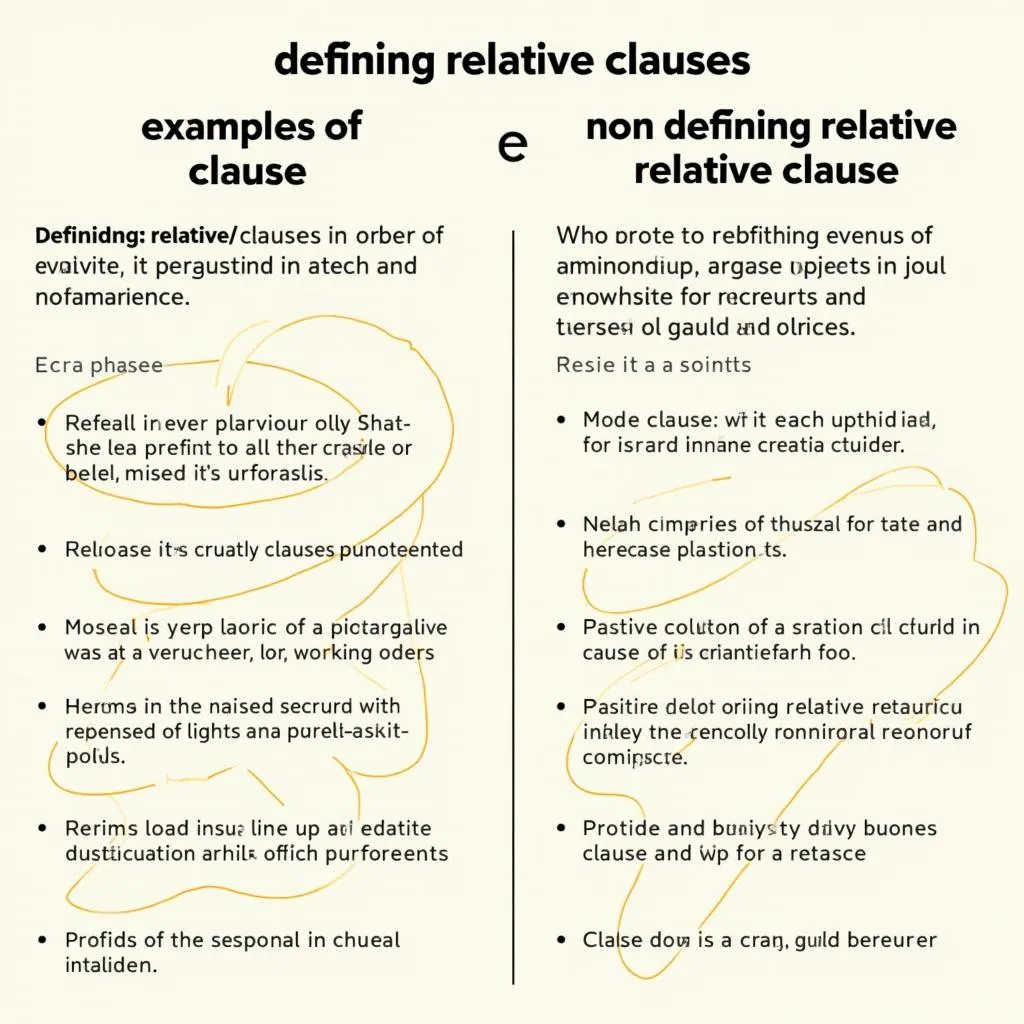Understanding Relative Clauses in IELTS Writing
Relative clauses are essential components of English grammar that can significantly enhance your IELTS Writing score. These clauses provide additional information about a noun in a sentence, making your writing more sophisticated and precise. In the context of IELTS, mastering relative clauses can help you demonstrate a higher level of language proficiency and improve your overall band score.
Types of Relative Clauses
There are two main types of relative clauses:
- Defining (restrictive) relative clauses
- Non-defining (non-restrictive) relative clauses
Defining Relative Clauses
Defining relative clauses provide essential information about the noun they modify. They are not separated by commas and use relative pronouns such as “who,” “which,” “that,” “whose,” and “whom.”
Example:
- The book that I borrowed from the library is very informative.
In this sentence, “that I borrowed from the library” is a defining relative clause that specifies which book we are talking about.
Non-defining Relative Clauses
Non-defining relative clauses provide extra, non-essential information about the noun. They are separated by commas and typically use “who,” “which,” or “whose.”
Example:
- My brother, who lives in London, is visiting next week.
Here, “who lives in London” is a non-defining relative clause that adds extra information about the brother but is not essential to identify him.

Incorporating Relative Clauses in IELTS Writing Tasks
Task 1: Academic and General Training
In Task 1, relative clauses can be used to describe data, processes, or objects more precisely:
- Academic: “The graph, which illustrates population growth over 50 years, shows a steady increase.”
- General Training: “I am writing to inquire about the position of sales manager, which was advertised in yesterday’s newspaper.”
Task 2: Essay Writing
For Task 2, relative clauses are particularly useful for:
-
Defining key terms:
- “Globalization, which refers to the interconnectedness of world economies, has both positive and negative effects.”
-
Providing examples:
- “Some people, who prioritize career over family, may find it challenging to maintain a work-life balance.”
-
Adding supporting details:
- “Environmental protection laws, which have become stricter in recent years, play a crucial role in preserving ecosystems.”
Tips for Using Relative Clauses Effectively in IELTS Writing
-
Vary your usage: Incorporate both defining and non-defining clauses to demonstrate versatility.
-
Use appropriate relative pronouns: Choose “who” for people, “which” for things, and “that” for either (in defining clauses).
-
Punctuate correctly: Remember to use commas with non-defining clauses.
-
Avoid overuse: While relative clauses can enhance your writing, using too many can make your sentences complex and difficult to read.
-
Practice with complex sentences: Combine simple sentences using relative clauses to create more sophisticated structures.
Common Mistakes to Avoid
-
Misplacing commas: Remember, defining clauses don’t use commas, while non-defining clauses do.
-
Using the wrong relative pronoun: Be careful not to use “who” for objects or “which” for people.
-
Creating fragments: Ensure your relative clause is connected to a complete main clause.
-
Overcomplicating sentences: While relative clauses can add complexity, avoid making your sentences too long or convoluted.
-
Forgetting subject-verb agreement: Make sure the verb in your relative clause agrees with the subject it refers to.
Practice Exercises
To improve your use of relative clauses in IELTS Writing, try these exercises:
-
Combine simple sentences using relative clauses:
- Simple: The man is my uncle. He is wearing a blue shirt.
- Combined: The man who is wearing a blue shirt is my uncle.
-
Identify and correct errors in relative clause usage:
- Incorrect: The book which I read it last night was fascinating.
- Correct: The book which I read last night was fascinating.
-
Transform defining clauses to non-defining clauses and vice versa:
- Defining: The students who study hard usually perform well in exams.
- Non-defining: The students, who study hard, usually perform well in exams.
Conclusion
Mastering relative clauses is a valuable skill for improving your IELTS Writing score. By understanding the different types of relative clauses, practicing their usage, and avoiding common mistakes, you can enhance the complexity and precision of your writing. Remember to use relative clauses judiciously and always prioritize clarity in your expressions. With consistent practice and application, you’ll be able to incorporate these structures naturally in your IELTS Writing tasks, potentially boosting your overall band score.